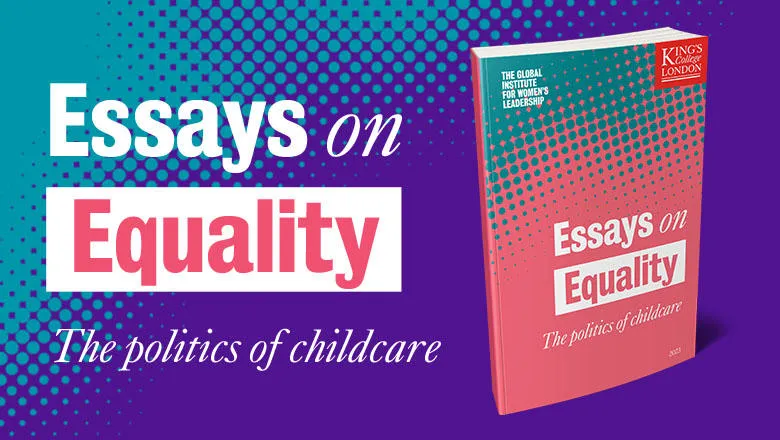13 February 2023
Essays on Equality: The politics of childcare
Read our latest essay collection

Download the essay collection
Essays on Equality: The politics of childcare
Produced by the Global Institute for Women's Leadership, the latest edition of Essays on Equality focuses on the gendered politics of childcare.
The essays take an international and intersectional lens to explore the broad range of issues around this topic – covering everything from the impacts of the cost of living crisis to parenting in a warzone.
Download the collection and read GIWL Chair Julia Gillard's foreword to it below. You can also register for our event celebrating the collection's launch and exploring how we can fix the UK's childcare system.

Foreword
The message from the essays in this collection is clear. A robust childcare system is foundational to gender equality and the wellbeing, not only of children and parents, but of society as a whole. When women leave the workforce, it reduces the availability of skills in the economy and puts them at greater risk of long-term poverty, particularly in old age. Getting childcare right will not only help stressed parents, it is fundamental to the success of the global economy and the wellbeing of future generations.
Unfortunately, the evidence shows the system in the UK is broken. Women are leaving work because they cannot afford childcare costs, and early years professionals are quitting the industry because they are underpaid and undervalued. The system does not work for parents, childcare workers or the economy. Early years education is the bedrock of children’s future attainment, yet it has been routinely overlooked, undercut and dismissed. Covid-19 and the ongoing cost of living crisis have brought these issues into sharp relief and action is urgently needed to address them.
What also comes through in these essays is that while care of children under school age is a crunch point, we need to take a much broader lens to close the motherhood gap. From pregnancy discrimination and unequal parental leave to the structuring of the school day, parents – and mothers in particular – face the pressures of balancing work with childcare for over a decade of each child’s life.
We are starting to see some progress in this area. The pandemic precipitated a huge shift towards flexible working in some sectors, and our research shows that this offers significant benefits for working parents. But there are still huge barriers to effective flexible working, and we know that parents (usually mothers) too often secure this flexibility at the expense of job quality, pay and career progression. And while greater job flexibility may smooth over some of the sharper edges of the struggle, it is not a panacea.
Childcare provision is a universal issue, and we must take a global perspective to fix it. This collection showcases best-practice examples from around the world, highlighting diverse experiences of parenthood. The aftermath of the pandemic and soaring cost of living have brought the childcare debate into the spotlight – there is an opportunity to harness this attention and bring about the change that is so urgently needed, to the benefit of children, parents and especially mothers. Care is infrastructure, and it is time it was valued as such.
Thank you to all our authors for their excellent essay contributions – I hope you find the collection as enlightening and informative as I have. If you would like to pick up any of the themes here, or have any other thoughts, please do get in touch with the GIWL team at giwl@kcl.ac.uk.
